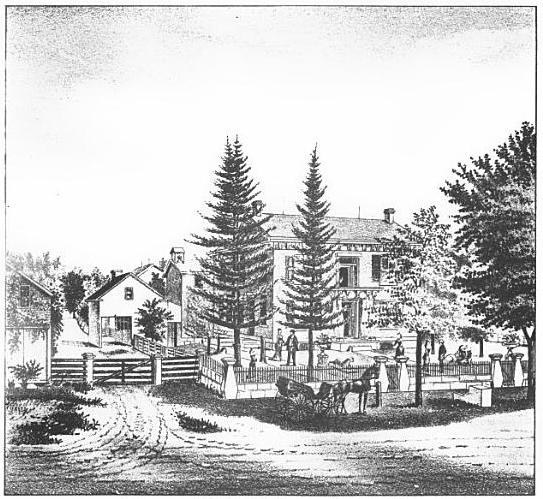
In Part 1, we made the case for how the Little House series portrays a cultural Christianity that contains moral teaching, positive character traits, a good work ethic, and traditional family values yet is bankrupt of the saving gospel of Christ. It portrays a religion of pulling yourself up by your own bootstraps. We must train our children to be discerning, always doubting man’s word and comparing it to God’s inspired, perfect Word. Now we will continue our survey of relevant Little House passages that give us the opportunity to teach our children how to recognize cultural Christianity—which still exists in America, though weaker and more secular than ever—and combat it with biblical truth.
Response to Trials
In By the Shores of Silver Lake (217–19), Ma recounted the illness that took Mary’s sight and how she patiently endured the trial. Reverend Alden responded, “We must remember that whom the Lord loveth, He chasteneth, and a brave spirit will turn all our afflictions to good.” Later he prayed, beseeching God, “Who knew their hearts and their secret thoughts, to look down on them there, and to forgive their sins and help them to do right.” After the pastor prayed, Laura felt a peace and resolve about giving up her own desires so that Mary could go to the college for the blind.
Discussion Questions
- Do we know for certain that Mary’s blindness was a result of God’s chastening? (Luke 13:1–5; John 9:3; Hebrews 12:5–11)
- For whom does God work all things together for good? (Romans 8:28)
- Whose likeness are Christians to be conformed to? (Romans 8:29)
- When the reverend prayed for forgiveness, how was it disconnected from the gospel? (Acts 4:12; Ephesians 1:7)
Mary and the Goodness of God
In Little Town on the Prairie (11–13), Laura was relishing her friendship with her sister now that they were grown up. But she confided that when they were little, she’d often want to slap Mary for being so good all the time. Mary explained that a lot of her “goodness” was showing off, and she referred to the Bible’s teaching about people’s wicked hearts. Then Mary said, “I don’t believe we ought to think so much about ourselves, about whether we are bad or good. . . . It isn’t so much thinking, as—as just knowing. Just being sure of the goodness of God.”
Discussion Questions
- Is being sure of the goodness of God enough to save a person? (Romans 2:4; Titus 3:4–7)
- When the rich young man called Jesus “good,” how did Christ respond to demonstrate He was God in the flesh? (Mark 10:17–18)
- What did Jesus tell the religious leader Nicodemus must happen to a person before he can see the kingdom of God (John 3:1–8)?
Raucous Revival Meeting
In Little Town on the Prairie (276–79), the Ingalls family listened quietly while fiery Reverend Brown worked up the rest of the crowd into an emotional frenzy, crying, “Repent ye, repent ye while yet there is time, time to be saved from damnation!”
Discussion Questions
- How can emotional altar calls manipulate an audience to short-lived responses? (Joel 2:13; Luke 8:11–15; 14:25–33)
- What was missing from Laura’s description of Reverend Brown’s altar call? (Acts 20:21; 1 Corinthians 2:2)
- How can a person know that he has eternal life? (1 John 5:13)
Removing “Obey” from Wedding Vows
In These Happy Golden Years (269–70), Laura discussed wedding vows with her fiancé and said, “I am not going to say I will obey you.” She explained, “I do not think I could obey anybody against my better judgment.”
Discussion Questions
- Whose judgment are we to trust? (Proverbs 3:5–7; Jeremiah 17:9; Romans 8:7; 1 Corinthians 1:25; 2 Timothy 3:16)
- Can you think of a Bible passage that speaks of a wife obeying her husband as an example for other wives to follow? (1 Peter 3:6; 1 Corinthians 11:3; Ephesians 5:22–24)
- If a husband were to ask his wife to do something that involved disobeying God’s Word, whom should she obey? (Acts 5:29)
- What “great mystery” is shown when a husband loves his wife as Christ loved the church and when a wife submits to her husband “just as the church is subject to Christ”? (Ephesians 5:22–33 )
Works Cited
Laura Ingalls Wilder. By the Shores of Silver Lake. New York: Harper & Row, 1971.
———. Little Town on the Prairie. New York: Harper & Row, 1971.
———. These Happy Golden Years. New York: Harper & Row, 1971.